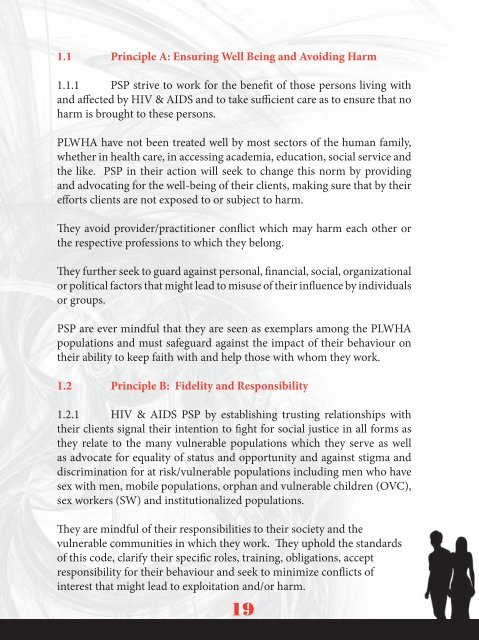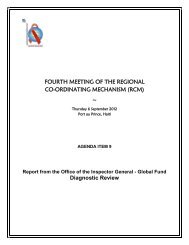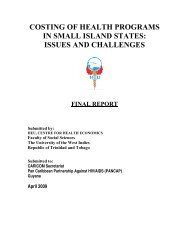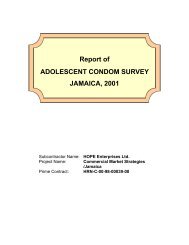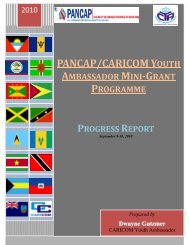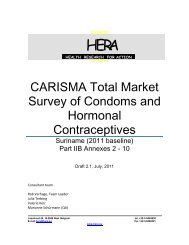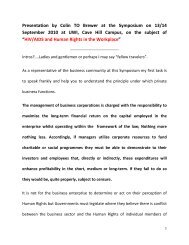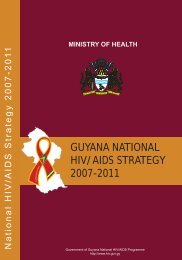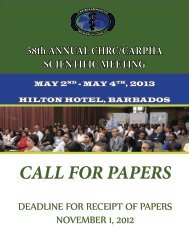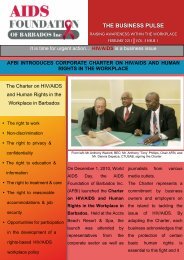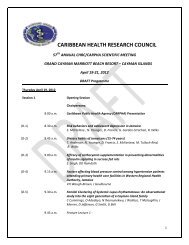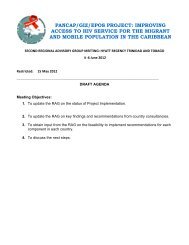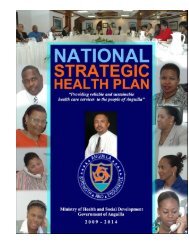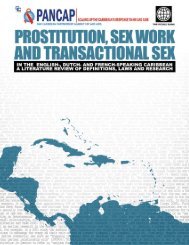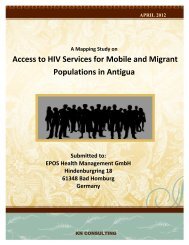Code of Practice for Psycho-Social Practitioners - PANCAP- Pan ...
Code of Practice for Psycho-Social Practitioners - PANCAP- Pan ...
Code of Practice for Psycho-Social Practitioners - PANCAP- Pan ...
Create successful ePaper yourself
Turn your PDF publications into a flip-book with our unique Google optimized e-Paper software.
1.1 Principle A: Ensuring Well Being and Avoiding Harm<br />
1.1.1 PSP strive to work <strong>for</strong> the benefit <strong>of</strong> those persons living with<br />
and affected by HIV & AIDS and to take sufficient care as to ensure that no<br />
harm is brought to these persons.<br />
PLWHA have not been treated well by most sectors <strong>of</strong> the human family,<br />
whether in health care, in accessing academia, education, social service and<br />
the like. PSP in their action will seek to change this norm by providing<br />
and advocating <strong>for</strong> the well-being <strong>of</strong> their clients, making sure that by their<br />
ef<strong>for</strong>ts clients are not exposed to or subject to harm.<br />
They avoid provider/practitioner conflict which may harm each other or<br />
the respective pr<strong>of</strong>essions to which they belong.<br />
They further seek to guard against personal, financial, social, organizational<br />
or political factors that might lead to misuse <strong>of</strong> their influence by individuals<br />
or groups.<br />
PSP are ever mindful that they are seen as exemplars among the PLWHA<br />
populations and must safeguard against the impact <strong>of</strong> their behaviour on<br />
their ability to keep faith with and help those with whom they work.<br />
1.2 Principle B: Fidelity and Responsibility<br />
1.2.1 HIV & AIDS PSP by establishing trusting relationships with<br />
their clients signal their intention to fight <strong>for</strong> social justice in all <strong>for</strong>ms as<br />
they relate to the many vulnerable populations which they serve as well<br />
as advocate <strong>for</strong> equality <strong>of</strong> status and opportunity and against stigma and<br />
discrimination <strong>for</strong> at risk/vulnerable populations including men who have<br />
sex with men, mobile populations, orphan and vulnerable children (OVC),<br />
sex workers (SW) and institutionalized populations.<br />
They are mindful <strong>of</strong> their responsibilities to their society and the<br />
vulnerable communities in which they work. They uphold the standards<br />
<strong>of</strong> this code, clarify their specific roles, training, obligations, accept<br />
responsibility <strong>for</strong> their behaviour and seek to minimize conflicts <strong>of</strong><br />
interest that might lead to exploitation and/or harm.<br />
19


